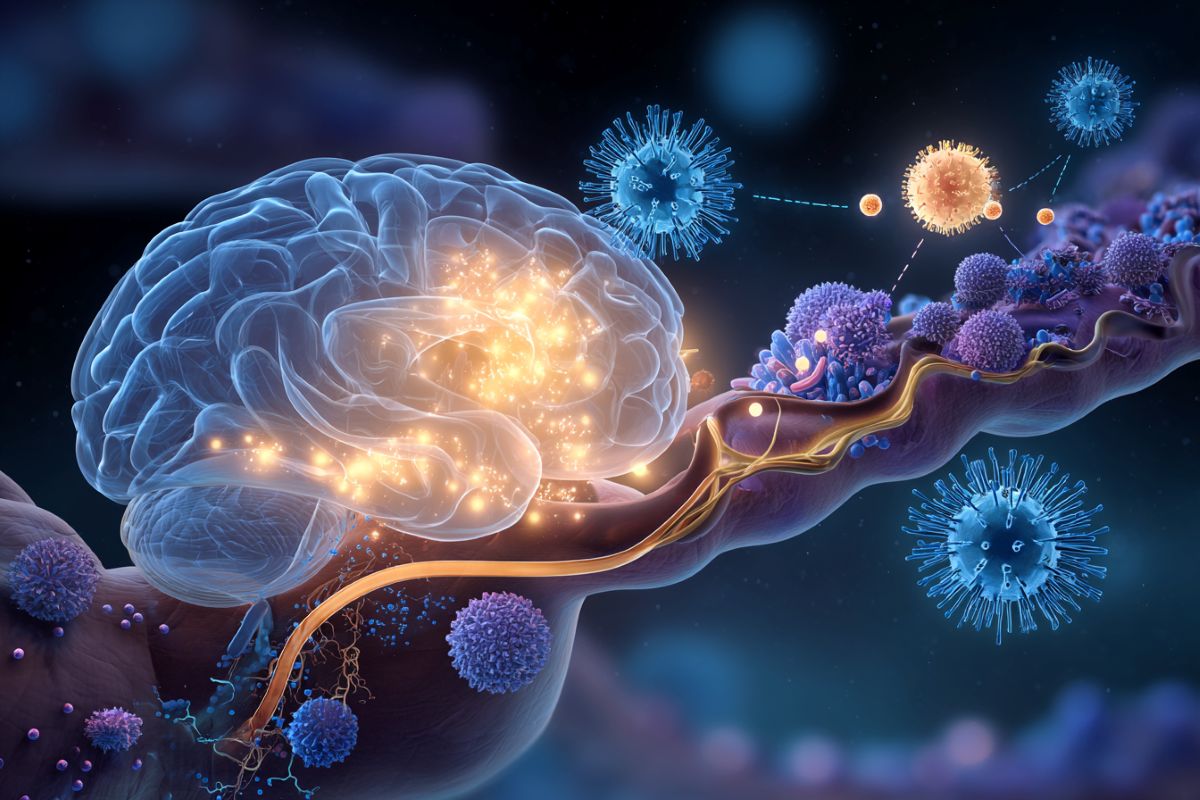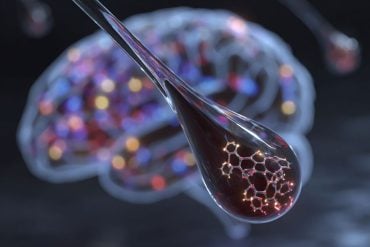Summary: Researchers have uncovered a critical connection between the gut microbiota, the immune system, and autism spectrum disorder (ASD). In a germ-free genetic mouse model, removal of gut microbes reduced autism-like behaviors and lowered brain inflammation, showing that microbes may play a dominant role in driving symptoms.
The study also found that gut microbes influence the balance of glutamate and GABA, two neurotransmitters that regulate brain activity. A probiotic strain, L. reuteri IMB015, was able to restore this balance, ease inflammation, and improve behaviors, pointing to probiotics as a potential therapeutic strategy for ASD.
Key Facts
- Microbial Role: Germ-free ASD mice showed fewer symptoms, implicating gut microbes.
- Immune Link: T cells and neuroinflammation were key drivers of ASD-like behaviors.
- Probiotic Therapy: L. reuteri IMB015 restored neurotransmitter balance and improved symptoms in mice.
Source: POSTECH
Autism spectrum disorder (ASD) affects an estimated 1 in 31 children in the United States by 2025, and prevalence in East Asian countries, such as South Korea, Singapore, and Japan, may be even higher than those in the United States.
Despite its increasing prevalence, the underlying causes of ASD remain poorly understood, and there are currently no curative, preventive, or treatment options available.

A research team from POSTECH and ImmunoBiome in Korea, led by Professor Sin-Hyeog Im, who also serves as the CEO of ImmunoBiome, has made a discovery that reveals a multi-faceted mechanism behind ASD.
This study, published in the July issue of Nature Communications, in collaboration with Dr. John C. Park and Prof. Tae-Kyung Kim, demonstrates that the gut microbiota and host immune system together can influence the progression of ASD in a genetic mouse model.
ASD has long been regarded as a genetically driven disorder. However, growing evidence suggests that environmental and microbial factors also play a role. The human gut harbors more than ten times as many microbial cells as human cells, and these microbes play vital roles in metabolism and the development of the immune system.
In recent years, clinical studies have shown that individuals with ASD have distinct gut microbiota compositions compared to neurotypical controls. Moreover, gastrointestinal comorbidities affect up to 90% of ASD patients, pointing to a potential pathogenic role of gut dysbiosis in ASD.
These findings have contributed to the growing gut–brain axis hypothesis, which proposes that gut microbes can influence brain function.
To investigate this further, Prof. Im’s team generated the world’s first germ-free (GF) genetic mouse (BTBR) model for ASD, allowing them to dissect the effects of host genetics, gut microbiota composition, metabolites, and host immune response on ASD progression.
Remarkably, GF-ASD mice lacking gut microbiota showed reduced ASD-associated behaviors, suggesting that the gut microbiota, rather than host genetics, may be the dominant driver of ASD symptoms.
Additionally, GF-ASD mice exhibited reduced neuroinflammation, particularly in inflammatory microglia and a newly identified brain-resident T cell population. By depleting T cells, the researchers were able to prevent ASD-like phenotypes, highlighting a gut-immune-brain signaling pathway in ASD pathology.
Using 16S-rRNA sequencing and a large-scale metabolomics approach, the researchers found that the gut microbiota influences the balance between glutamate and GABA, two key neurotransmitters that are excitatory and inhibitory, respectively. An altered glutamate/GABA ratio may directly affect neuronal activity and behavior in ASD.
To address this imbalance, ImmunoBiome’s AI team developed an in silico model to predict probiotic strains with specific metabolic functions.
One such strain, Limosilactobacillus reuteri IMB015, was identified for its ability to uptake glutamate and produce GABA. In ASD mouse models, treatment with IMB015 restored metabolic balance, reduced neuroinflammation, and ameliorated behavioral abnormalities.
ImmunoBiome plans to advance L. reuteri IMB015 as a live biotherapeutic product (LBP) or probiotics for ASD treatment. This includes conducting comprehensive preclinical toxicity evaluations and progressing to clinical trials to assess its safety and therapeutic efficacy in humans.
About this autism research news
Author: Sin-Hyeog
Source: POSTECH
Contact: Sin-Hyeog – POSTECH
Image: The image is credited to Neuroscience News
Original Research: Open access.
“Gut microbiota and brain-resident CD4+ T cells shape behavioral outcomes in autism spectrum disorder” by Sin-Hyeog et al. Nature Communications
Abstract
Gut microbiota and brain-resident CD4+ T cells shape behavioral outcomes in autism spectrum disorder
Autism spectrum disorder (ASD) is a neurodevelopmental disorder characterized by alterations in social, repetitive, and anxiety-like behaviors.
While emerging evidence suggest a gut-brain etiology in ASD, the underlying mechanisms remain unclear.
To dissect this axis, we developed a germ-free BTBR mouse model for ASD. The absence of gut microbiota in male mice ameliorates ASD-associated behaviors and reduces populations of inflammatory brain-resident T cells.
Additionally, CD4+ T cell depletion mitigates neuroinflammation and ASD behaviors, suggesting a gut-immune-brain axis.
We identify several microbial and metabolic regulators of ASD, particularly those relevant to the glutamate/GABA ratio and 3-hydroxyglutaric acid.
Using an in silico metabolite prediction model, we propose Limosilactobacillus reuteri IMB015 (IMB015) to be a probiotic candidate.
Administration of IMB015 reduces the glutamate/GABA ratio and neuroinflammation, resulting in improved behaviors.
Here we report a gut-immune-brain axis in which the gut microbiota and its metabolites can modulate brain-resident immune cells and ASD-associated behaviors.






